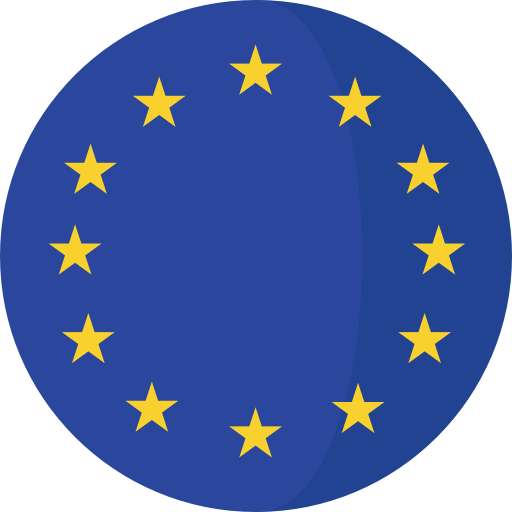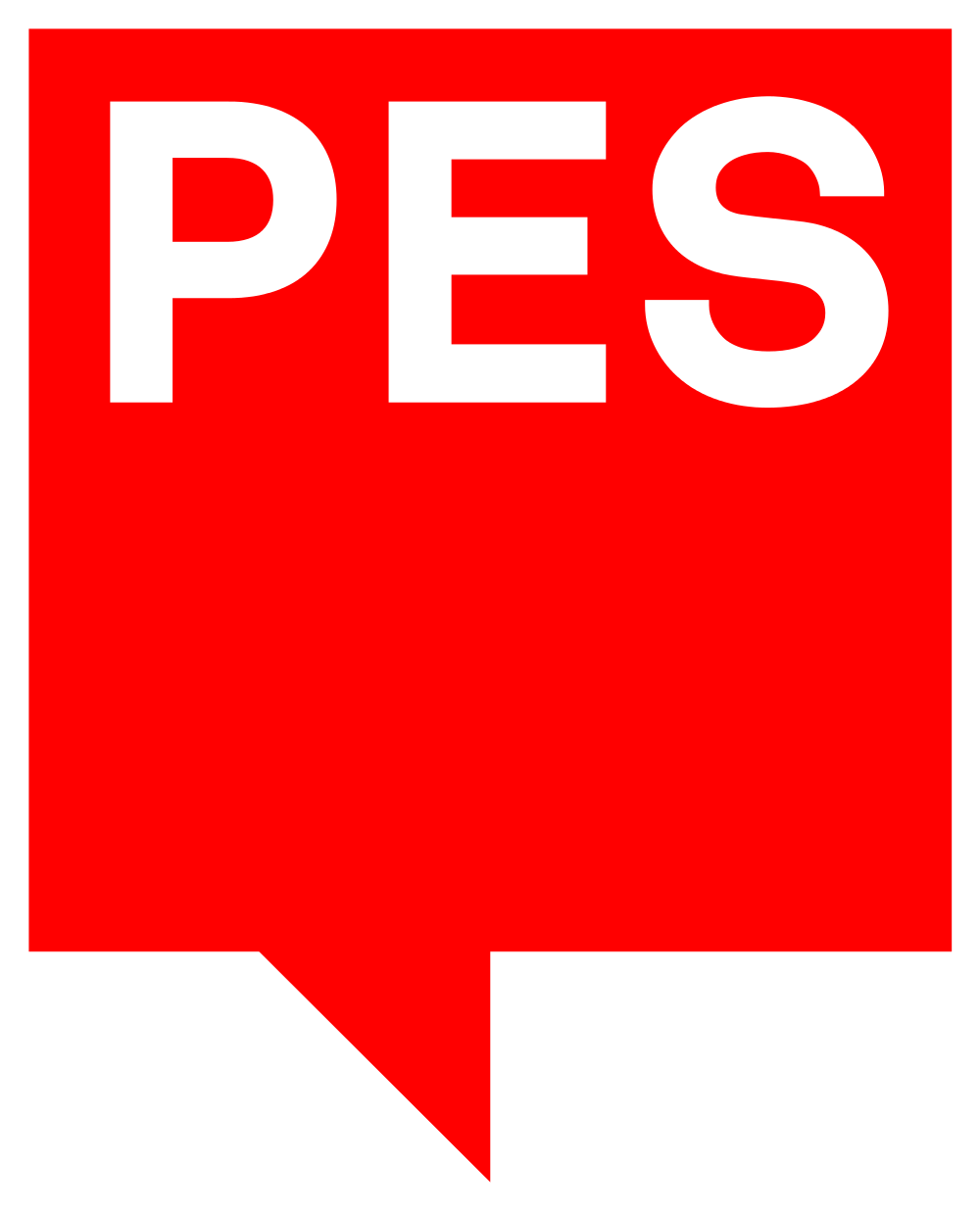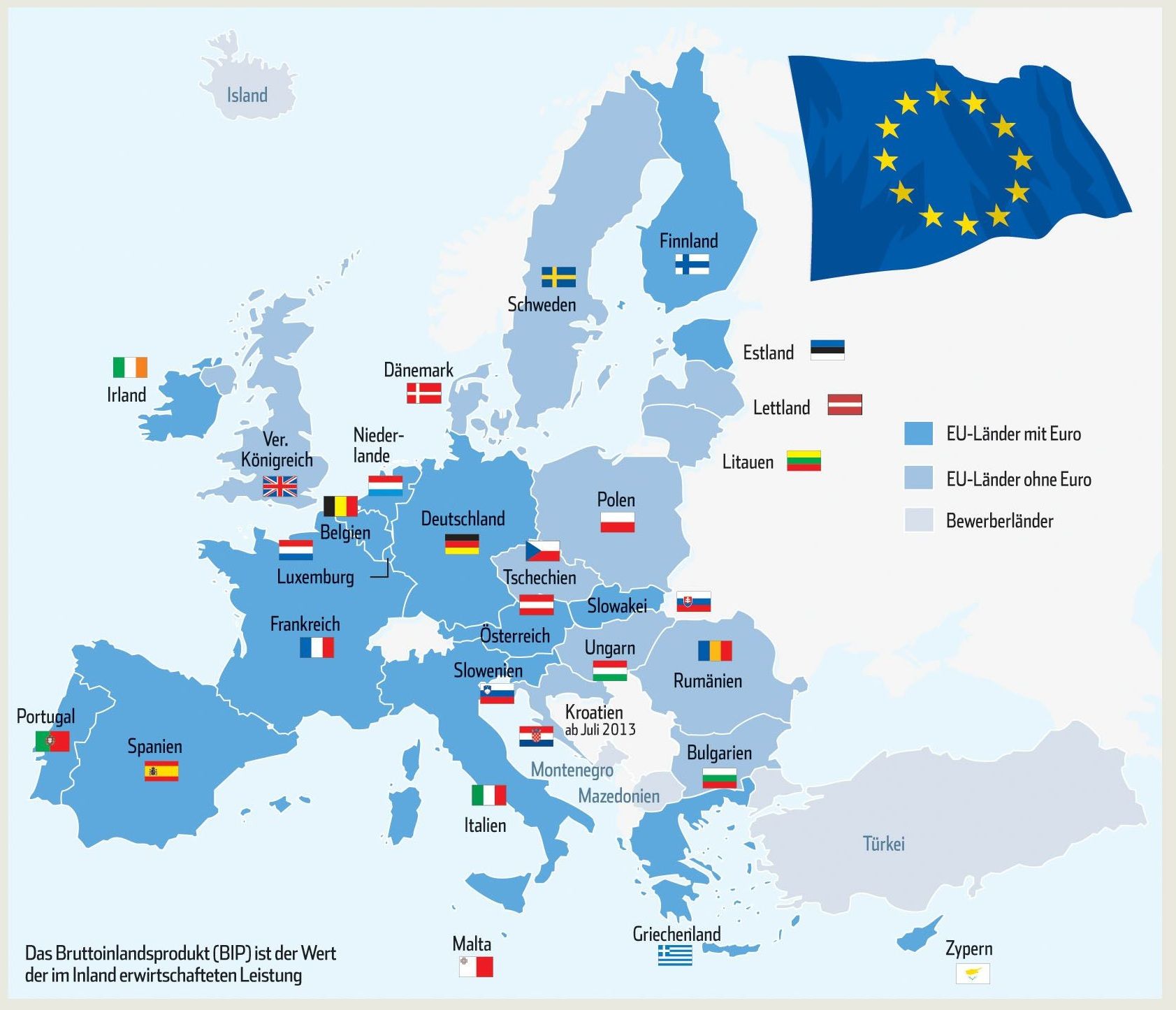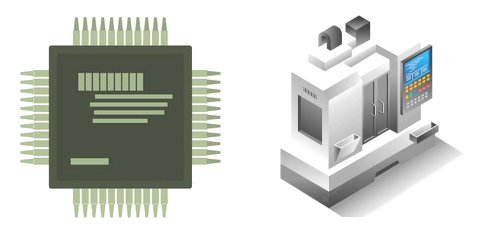
漢德百科全書 | 汉德百科全书
 European Union
European Union

 Belgium
Belgium
 Germany
Germany
 Estonia
Estonia


 Financial
Financial
 Currency
Currency

 Financial
Financial
 *Germany economic data
*Germany economic data

 Financial
Financial
 *European Union economic data
*European Union economic data

 Financial
Financial
 *France economic data
*France economic data

 Financial
Financial
 *Italy economic data
*Italy economic data

 Financial
Financial
 Special Drawing Right
Special Drawing Right

 Financial
Financial
 *Brazil economic data
*Brazil economic data

 Financial
Financial
 *China economic data
*China economic data

 Financial
Financial
 *India economic data
*India economic data

 Financial
Financial
 *Indonesia economic data
*Indonesia economic data

 Financial
Financial
 *Russia economic data
*Russia economic data
 Finland
Finland
 France
France
 Greece
Greece
 Hartwährung/Strong Currency
Hartwährung/Strong Currency
 Ireland
Ireland
 Italy
Italy
 Latvia
Latvia
 Luxembourg
Luxembourg
 Malta
Malta
 Netherlands
Netherlands
 Austria
Austria
 Portugal
Portugal
 Slovakia
Slovakia
 Slovenia
Slovenia
 Spain
Spain
 Cyprus
Cyprus

 Belgium
Belgium
 Germany
Germany
 Estonia
Estonia


 Financial
Financial
 Finland
Finland
 France
France
 Greece
Greece

 Hand in Hand
Hand in Hand
 Ireland
Ireland
 Italy
Italy
 Croatia
Croatia
 Latvia
Latvia
 Lithuania
Lithuania
 Luxembourg
Luxembourg
 Malta
Malta
 Netherlands
Netherlands
 Austria
Austria
 Portugal
Portugal
 Slovakia
Slovakia
 Slovenia
Slovenia
 Spain
Spain

 Economy and trade
Economy and trade
 Cyprus
Cyprus



 European Union
European Union

 Financial
Financial
 *Germany economic data
*Germany economic data

 Financial
Financial
 *European Union economic data
*European Union economic data

 Financial
Financial
 *France economic data
*France economic data

 Financial
Financial
 *Italy economic data
*Italy economic data


 Belgium
Belgium
 Bulgaria
Bulgaria
 Denmark
Denmark
 Germany
Germany
 Estonia
Estonia

 European Union
European Union
 Member States of the European Union
Member States of the European Union
 Finland
Finland
 France
France

 History
History

 History
History

 History
History
 N 2000 - 2100 AD
N 2000 - 2100 AD
 Greece
Greece

 Hand in Hand
Hand in Hand
 Ireland
Ireland
 Italy
Italy
 Croatia
Croatia
 Latvia
Latvia
 Lithuania
Lithuania
 Luxembourg
Luxembourg
 Malta
Malta
 Netherlands
Netherlands
 Nobel prize
Nobel prize
 Nobel Peace Prize
Nobel Peace Prize
 Nobel prize
Nobel prize
 2012
2012
 Austria
Austria

 Party and government
Party and government
 Group of the twenty most important industrial and emerging countries
Group of the twenty most important industrial and emerging countries

 Party and government
Party and government
 Group of Seven,G7
Group of Seven,G7
 Poland
Poland
 Portugal
Portugal
 Romania
Romania
 Sweden
Sweden
 Slovakia
Slovakia
 Slovenia
Slovenia
 Spain
Spain
 Czech Republic
Czech Republic
 Hungary
Hungary

 Economy and trade
Economy and trade
 Free trade agreement
Free trade agreement
 Cyprus
Cyprus
Die Europäische Union (EU) ist ein Verbund von derzeit 28 Mitgliedstaaten. Außerhalb von Europa umfasst die EU auch einige Überseegebiete. Sie hat insgesamt mehr als eine halbe Milliarde Einwohner. Gemessen am Bruttoinlandsprodukt ist der EU-Binnenmarkt der größte gemeinsame Wirtschaftsraum[7] der Erde. Die EU stellt eine eigenständige Rechtspersönlichkeit dar und hat daher Einsichts- und Rederecht bei den Vereinten Nationen.[8] Die verbreitetsten Sprachen in der EU sind Englisch, Deutsch und Französisch. Im Jahre 2012 wurde die Europäische Union mit dem Friedensnobelpreis ausgezeichnet.[9]
Das politische System der EU, das sich im Zuge der europäischen Integration herausgebildet hat, basiert auf dem Vertrag über die Europäische Union und dem Vertrag über die Arbeitsweise der Europäischen Union. Es enthält sowohl überstaatliche als auch zwischenstaatliche Elemente. Während im Europäischen Rat und im Rat der Europäischen Union die einzelnen Staaten mit ihren Regierungen vertreten sind, repräsentiert das Europäische Parlament bei der Rechtsetzung der EU unmittelbar die Unionsbürger. Die Europäische Kommission als Exekutivorgan und der EU-Gerichtshof als Rechtsprechungsinstanz sind ebenfalls überstaatliche Einrichtungen.
Die Anfänge der EU gehen auf die 1950er-Jahre zurück, als zunächst sechs Staaten die Europäische Wirtschaftsgemeinschaft (EWG) gründeten. Eine gezielte wirtschaftliche Verflechtung sollte militärische Konflikte für die Zukunft verhindern und durch den größeren Markt das Wirtschaftswachstum beschleunigen und damit den Wohlstand der Bürger steigern. Im Lauf der folgenden Jahrzehnte traten in mehreren Erweiterungsrunden weitere Staaten den Gemeinschaften (EG) bei. Ab 1985 wurden mit dem Schengener Übereinkommen die Binnengrenzen zwischen den Mitgliedsländern geöffnet. Nach dem Fall des Eisernen Vorhangs beziehungsweise der Auflösung des Ostblockes im Jahr 1989 änderte sich die geopolitische Lage in Europa grundlegend, womit sich Möglichkeiten zur Vertiefung der Integration, aber auch zur Vorbereitung von Erweiterungen im Osten ergaben. Mit dem Vertrag von Maastricht wurde 1992 die Europäische Union gegründet, die damit Zuständigkeiten in nichtwirtschaftlichen Politikbereichen bekam. In mehreren Reformverträgen, zuletzt im Vertrag von Lissabon, wurden die überstaatlichen Zuständigkeiten der EU ausgebaut und die demokratische Verankerung der politischen Entscheidungsprozesse auf Unionsebene nachgebessert, vor allem durch nochmalige Stärkung der Stellung des Europäischen Parlaments. Eine europäische Öffentlichkeit und Identität als Voraussetzung einer supranationalen Volkssouveränität bildet sich indes erst allmählich und nicht ohne Gegenströmungen heraus. Seit den 1980er-Jahren nahm mit den Kompetenzerweiterungen und dem damit einhergehenden Bedeutungsgewinn der EU auch die öffentliche Debatte über die Verfasstheit der EU an Intensität zu; dabei wurden auch EU-skeptische Positionen vermehrt artikuliert. Im Vertrag von Lissabon wurden im Jahr 2007 auch Austrittsszenarien geregelt.
Von den 28 EU-Staaten bilden 19 Staaten eine Wirtschafts- und Währungsunion. Im Jahr 2002 wurde eine gemeinsame Währung für diese Länder, der Euro, eingeführt. Im Rahmen des Raums der Freiheit, der Sicherheit und des Rechts arbeiten die EU-Mitgliedstaaten in der Innen- und Justizpolitik zusammen. Durch die gemeinsame Außen- und Sicherheitspolitik bemühen sie sich um ein gemeinsames Auftreten gegenüber Drittstaaten. Zukunftsbezogenes gemeinsames Handeln ist Gegenstand der Initiative Europa 2020, zu der unter anderem die Digitalpolitik gehört. Die Europäische Union hat Beobachterstatus in der G7, ist Mitglied in der G20 und vertritt ihre Mitgliedstaaten in der Welthandelsorganisation.
Die EU war 2016 der weltweit zweitgrößte Wirtschaftsraum nach nominalem (hinter den USA) sowie kaufkraftbereinigten Bruttoinlandsprodukt (hinter der Volksrepublik China). Als Staatenverbund ist sie der größte Güterproduzent und die größte Handelsmacht der Welt. Die Mitgliedsstaaten haben einen der höchsten Lebensstandards weltweit, wobei es jedoch auch innerhalb der EU deutliche Unterschiede zwischen einzelnen Ländern gibt. Im Index der menschlichen Entwicklung galten 2015 26 der 28 Mitgliedstaaten als „sehr hoch“ entwickelt.
Nach der Osterweiterung in den Jahren 2004 und 2007 ist die Europäische Union infolge der Finanzkrise ab 2007 und durch die Flüchtlingskrise ab 2015 in verschiedenen Mitgliedsstaaten einer zunehmenden EU-Skepsis von Teilen der Bevölkerung ausgesetzt, die sich unter anderem in dem Brexit-Referendum von 2016 niedergeschlagen hat. Unter dem Eindruck der Krisenerscheinungen und der Zunahme von rechtspopulistischen Tendenzen in den Mitgliedstaaten der Union wird die EU-Finalitätsdebatte neuerlich intensiv geführt. Einen auf die nähere Zukunft gerichteten, stark beachteten Reformplan hat der französische Staatspräsident Emmanuel Macron mit seiner Initiative für Europa vorgelegt.
欧洲联盟(英语:European Union;法语:Union européenne;德语:Europäische Union),简称欧盟(英语:EU;法语:UE;德语:EU),是根据1993年生效的《马斯特里赫特条约》(也称《欧洲联盟条约》)所建立的政治经济联盟,现拥有28个成员国,正式官方语言有24种。规范欧盟的条约经过多次修订,目前欧盟的运作方式依照《里斯本条约》。政治上所有成员国均为议会民主国家(2008年《经济学人》民主状态调查);经济上为仅次于以美国为首的北美自由贸易区的世界上第二大经济实体,德国、法国及意大利为欧盟三大核心成员国;军事上绝大多数欧盟成员国均为北大西洋公约组织成员。
欧盟的历史可追溯至1952年建立的欧洲煤钢共同体,当时只有六个成员国。1958年又成立了欧洲经济共同体和欧洲原子能共同体,1967年统合在欧洲各共同体之下,1993年又统合在欧洲联盟之下,欧盟已经渐渐地从贸易实体转变成经济和政治联盟。同时,欧洲经济共同体和后来的欧盟在1973年至2013年期间进行了八次扩大,成员国从6个增至28个。起初推动欧盟建立的动机,是渴望重建二战后损失惨重的欧洲,以及担忧欧洲会再度陷入战争泥潭。
欧盟的主要机构有欧洲委员会(成员国家首脑组成)、欧盟理事会(成员国家部长组成的欧盟的上议院)、欧盟委员会(欧盟的行政机构)、欧洲议会(欧盟的众议院,唯一的直接民选机构)、欧洲法院、欧洲中央银行等。此外,欧洲原子能共同体也在欧洲共同体的管辖范围之内,但在法律上是独立于欧盟的国际组织。
欧元由28个成员国中的19个采纳为流通货币;《申根条约》取消了部分成员国之间的边境管制,目前已有22个欧盟成员国和4个非成员国实施。
目前欧盟的主要议题有英国脱欧、欧盟的扩大、落实《里斯本条约》、全球暖化问题、非欧元区成员国加入欧元区、主权债务危机、移民危机等。
欧州連合(おうしゅうれんごう、英: European Union、略称:EU)は、マーストリヒト条約により設立されたヨーロッパの地域統合体。
欧州連合では欧州連合条約の発効前に調印されていた単一欧州議定書によって市場統合が実現し、またシェンゲン協定により域内での国境通過にかかる手続きなどの負担を大幅に削減した。さらに欧州連合条約発効後によって外交・安全保障分野と司法・内務分野での枠組みが新たに設けられ、ユーロの導入による通貨統合が進められている。このほかにも欧州議会の直接選挙が実施されたり、欧州連合基本権憲章が採択されたりするなど、欧州連合の市民の概念が具現化されつつある。加盟国数も欧州経済共同体設立を定めたローマ条約発効時の6か国から、2013年7月のクロアチア加盟により28か国にまで増えている。
The European Union (EU) is a political and economic union of 28 member states that are located primarily in Europe.[13] It has an area of 4,475,757 km2 (1,728,099 sq mi) and an estimated population of over 510 million. The EU has developed an internal single market through a standardised system of laws that apply in all member states in those matters (only) where members have agreed to act as one. EU policies aim to ensure the free movement of people, goods, services and capital within the internal market,[14] enact legislation in justice and home affairs and maintain common policies on trade,[15] agriculture,[16] fisheries and regional development.[17] For travel within the Schengen Area, passport controls have been abolished.[18] A monetary union was established in 1999 and came into full force in 2002 and is composed of 19 EU member states which use the euro currency.
The EU and European citizenship were established when the Maastricht Treaty was enacted in 1993.[19] The EU traces its origins to the European Coal and Steel Community (ECSC) and the European Economic Community (EEC), established, respectively, by the 1951 Treaty of Paris and 1957 Treaty of Rome. The original members of what came to be known as the European Communities were the Inner Six: Belgium, France, Italy, Luxembourg, the Netherlands, and West Germany. The Communities and its successors have grown in size by the accession of new member states and in power by the addition of policy areas to its remit. The latest major amendment to the constitutional basis of the EU, the Treaty of Lisbon, came into force in 2009. While no member state has left the EU or its predecessors, the United Kingdom signified an intention to leave after a membership referendum in June 2016 and is negotiating its withdrawal.
The European Union provides more foreign aid than any other economic union.[20] Covering 7.3% of the world population,[21] the EU in 2017 generated a nominal gross domestic product (GDP) of 19.670 trillion US dollars, constituting approximately 24.6% of global nominal GDP[22] and 16.5% when measured in terms of purchasing power parity.[23] Additionally, 27 out of 28 EU countries have a very high Human Development Index, according to the United Nations Development Programme. In 2012, the EU was awarded the Nobel Peace Prize.[24] Through the Common Foreign and Security Policy, the EU has developed a role in external relations and defence. The union maintains permanent diplomatic missions throughout the world and represents itself at the United Nations, the World Trade Organization, the G7 and the G20. Because of its global influence, the European Union has been described as an emerging superpower.[25]
L'Union européenne (UE)Note 4 est une association politico-économique sui generis de vingt-huit États européens qui délèguent ou transmettent par traité l’exercice de certaines compétences à des organes communautaires5,6. Elle s'étend sur un territoire de 4,5 millions de kilomètres carrés7, est peuplée de plus de 512 millions d'habitants3 et est la deuxième puissance économique mondiale en termes de PIB nominal derrière les États-Unis8,9,10. L’Union européenne est régie par le traité de Maastricht (TUE) et le traité de Rome (TFUE), dans leur version actuelle, depuis le 1er décembre 2009 et l'entrée en vigueur du traité de Lisbonne. Sa structure institutionnelle est en partie supranationale et en partie intergouvernementale : le Parlement européen est élu au suffrage universel direct, tandis que le Conseil européen et le Conseil de l'Union européenne (informellement le « Conseil des ministres ») sont composés de représentants des États membres. Le président de la Commission européenne est pour sa part élu par le Parlement sur proposition du Conseil européen. La Cour de justice de l'Union européenne est chargée de veiller à l'application du droit de l'Union européenne.
La déclaration du 9 mai 1950 de Robert Schuman, alors ministre français des Affaires étrangères, est considérée comme le texte fondateur de la construction européenne. Sous l’impulsion de personnalités politiques surnommées les « pères de l'Europe »11, comme Konrad Adenauer, Jean Monnet et Alcide De Gasperi, six États créent en 1951 la Communauté européenne du charbon et de l'acier. Après l’échec d'une Communauté européenne de défense en 1954, une Communauté économique européenne est instaurée en 1957 par le traité de Rome. La coopération économique est approfondie par l’Acte unique européen en 1986. En 1992, le traité de Maastricht prend la suite de l’Acte unique et institue une union politique qui prend le nom d’Union européenne et qui prévoit la création d'une union économique et monétaire dotée d’une monnaie unique : l’euro. Instituée en 1999, la zone euro compte dix-neuf États en 2017. De nouvelles réformes institutionnelles sont introduites en 1997 et en 2001. À la suite de l’échec d’un projet de constitution européenne après le refus par référendum des peuples français et néerlandais, les institutions sont à nouveau réformées en 2009 par le traité de Lisbonne pour y intégrer les mesures prévues par ce projet de constitution.
Depuis la formation de la CEE, le nombre d'États membres est passé de 6 à 28. Les membres fondateurs de la Communauté économique européenne, en 1957, sont l'AllemagneNote 5, la Belgique, la France, l'Italie, le Luxembourg et les Pays-Bas. Ils sont rejoints en 1973 par trois membres de l'Association européenne de libre-échange : le Danemark, l'Irlande et le Royaume-Uni. L'Union s'élargit vers le sud avec d'abord l'adhésion de la Grèce en 1981, puis celle de l'Espagne et du Portugal en 1986. Entretemps, en 1985, le Groenland a décidé de se retirer en ratifiant le Traité sur le Groenland et a désormais le statut de pays et territoire d'outre-mer associé. Avec la fin de la Guerre froide, la partie orientale de l'Allemagne rejoint la Communauté économique européenne en 1990Note 6. L'Union européenne intègre en 1995 des États neutres : l'Autriche, la Finlande et la Suède. En 2004, dix nouveaux États, en majorité issus du bloc de l'Est, s'ajoutent aux quinze déjà membres : Chypre, l'Estonie, la Hongrie, la Lettonie, la Lituanie, Malte, la Pologne, la Slovaquie, la Slovénie et République tchèque. Deux États supplémentaires, la Bulgarie et la Roumanie, complètent en 2007 ce cinquième élargissement, Enfin, en 2013, la Croatie rejoint l'Union12. Le 23 juin 2016, les citoyens britanniques votent en majorité pour la sortie du Royaume-Uni de l'Union européenne dans le cadre d'un référendum. La procédure de retrait est enclenchée le 29 mars 2017 par l'activation de l'article 50 du traité sur l'Union européenne.
Le 12 octobre 2012, le prix Nobel de la paix est attribué à l'Union européenne pour « sa contribution à la promotion de la paix, la réconciliation, la démocratie et les droits de l'Homme en Europe »13.
L'Unione europea (abbreviata in UE o Ue, pron. /ˈue/[12]) è un'organizzazione internazionale politica ed economica a carattere sovranazionale, che comprende 28 paesi membri indipendenti e democratici. La sua formazione risale al trattato di Roma del 25 marzo 1957, la denominazione attuale al trattato di Maastricht del 7 febbraio 1992 (entrato in vigore il 1º novembre 1993), e l'istituzione ufficiale al 2002 con l'avvento della valuta unica ed il successivo trattato di Lisbona, dopo un lungo percorso intrapreso dalle Comunità europee precedentemente esistenti e attraverso la stipulazione di numerosi trattati, che hanno contribuito al processo di integrazione europea.
Questa garantisce la libera circolazione di persone, merci, servizi e capitali all'interno del suo territorio attraverso un mercato europeo comune e la cittadinanza dell'Unione europea, promuove la pace, i valori e il benessere dei suoi popoli, lotta contro l'esclusione sociale e la discriminazione, favorisce il progresso scientifico e tecnologico e mira alla stabilità politica, alla crescita economica e alla coesione sociale e territoriale tra gli stati membri[13], cercando di attenuare le differenze socio-economiche tra i vari stati membri e incrementarne il benessere socio-economico.
Le competenze dell'Unione europea spaziano dalle politiche economiche (agricoltura e commercio) agli affari esteri, alla difesa e alla protezione ambientale, con una politica agraria comune, una politica estera comune e la presenza di fondi strutturali per il raggiungimento degli obiettivi socio-economici preposti. In alcuni di questi campi tali funzioni la rendono dunque simile a una federazione di stati (per es. per quanto riguarda gli affari monetari o le politiche ambientali), mentre in altri settori l'Unione è più vicina a una confederazione (mancando di una Costituzione, ordinamento giuridico, politica interna e politica industriale comuni) o a un'organizzazione politica sovranazionale (come per la politica estera).
Le politiche di unione economica e monetaria dell'Unione europea hanno portato nel 2002 all'introduzione di una moneta unica, l'euro, attualmente adottato da 19 stati dell'Unione, che formano la cosiddetta eurozona, con una politica monetaria comune regolata dalla Banca centrale europea (BCE).
Il 12 ottobre 2012 è stata insignita del premio Nobel per la pace, con la seguente motivazione: «per oltre sei decenni ha contribuito all'avanzamento della pace e della riconciliazione, della democrazia e dei diritti umani in Europa».[14]
La Unión Europea (UE) es una comunidad política de derecho constituida en régimen sui géneris de organización internacional nacida para propiciar y acoger la integración y gobernanza en común de los Estados y los pueblos de Europa. Está compuesta por veintiocho Estados europeos y fue establecida con la entrada en vigor del Tratado de la Unión Europea (TUE) el 1 de noviembre de 1993.6
Con ese acto, la supraestructura «Unión Europea» aunaba y se fundaba sobre las tres Comunidades Europeas preexistentes —la Comunidad Europea del Carbón y del Acero (CECA), la Comunidad Europea de la Energía Atómica (Euratom) y la Comunidad Económica Europea (CEE/CE)— y les añadía la política exterior común y la cooperación judicial y policial, formando un sistema complejo conocido como «los tres pilares». Sin embargo, con la entrada en vigor el 1 de diciembre de 2009 del Tratado de Lisboa, la Unión Europea sucedió, por completo aunque con ciertas particularidades, a las Comunidades Europeas y asumió con ello su personalidad jurídica única como sujeto de derecho internacional.7
La Unión Europea ha desarrollado un sistema jurídico y político, el comunitario europeo, único en el mundo, que se rige por mecanismos y procedimientos de funcionamiento interno complejos, que se han extendido y evolucionado a lo largo de su historia hasta conformar, en la actualidad, un sistema híbrido de gobierno transnacional difícilmente homologable que combina elementos próximos a la cooperación multilateral, si bien fuertemente estructurada e institucionalizada, con otros de vocación netamente supranacional, regidos ambos por una dinámica de integración regional muy acentuada.
Todo esto desemboca en una peculiarísima comunidad de Derecho, cuya naturaleza jurídica y política es muy discutida, si bien sus elementos fundacionales y su evolución histórica, todavía abierta, apuntan, en el presente, a una especial forma de moderna confederación o gobernanza supranacional, acusadamente institucionalizada y con una inspiración histórico-política de vocación federal —en el sentido de un federalismo internacional n

Die Fraktion Die Grünen/Europäische Freie Allianz im Europäischen Parlament (Grüne/EFA)[1] ist eine Fraktion im Europäischen Parlament. Sie wird im Wesentlichen von zwei Europaparteien getragen, der Europäischen Grünen Partei (EGP) und der regionalistischen Europäischen Freien Allianz (EFA). Kurz vor der Europawahl 2019 hatte die Fraktion 52 Mitglieder. Davon waren 41 Mitglied der EGP, sieben Mitglied der EFA und vier waren unabhängige Mitglieder der Fraktion.
Vorgänger der Fraktion war die nach der Europawahl 1984 gegründete Regenbogenfraktion, der neben Grünen und Regionalisten auch linke Parteien angehörten. Nach der Europawahl 1989 spaltete sich davon die Fraktion Die Grünen im Europäischen Parlament ab. Nachdem die EFA aus den Europawahlen 1994 deutlich geschwächt hervorging, vereinigte sie sich mit einigen radikalliberalen Parteien zur Fraktion der Europäischen Radikalen Allianz. Nach der Europawahl 1999 zerfiel auch diese Fraktion und die EFA-Mitglieder schlossen sich der Grünen Fraktion an, die ihren Namen in Die Grünen/Europäische Freie Allianz änderte.[1]
Die Fraktion Grüne/EFA war in der Legislaturperiode 2004–2009 die Fraktion mit der höchsten Fraktionsdisziplin, d. h. den kleinsten Unterschieden im Abstimmungsverhalten.[2] Zugleich war sie die Fraktion, deren Mitglieder am häufigsten bei Plenarsitzungen des Parlaments anwesend waren.[3]
Aus dem deutschsprachigen Raum waren in der Legislaturperiode 2014–2019 aus Deutschland Bündnis 90/Die Grünen mit 11 Abgeordneten sowie je ein Abgeordneter der Piratenpartei Deutschland und der Ökologisch-Demokratischen Partei, aus Österreich Die Grünen – Die Grüne Alternative mit drei Abgeordneten und aus Luxemburg Déi Gréng mit einem Abgeordneten vertreten.
绿党–欧洲自由联盟(英语:Greens–European Free Alliance,缩写为Greens – EFA;法语:Le Groupe Verts – Alliance libre européenne,缩写为Les Verts – ALE;德语:Fraktion der Grünen – Europäische Freie Allianz,缩写为Grüne/EFA)是欧洲议会中的一个党团,[1] 由欧洲绿党和欧洲自由联盟两个欧洲政党所组成。[2]
在2004年2月以前,该党团的名称是欧洲绿党联盟(European Federation of Green Parties),缩写为EFGP-EFA。
欧州緑グループ・欧州自由同盟(おうしゅうみどりグループ・おうしゅうじゆうれんめい)は、欧州議会の政治会派[1]。
欧州緑グループ・欧州自由同盟は欧州緑の党と欧州自由同盟という2つの欧州規模の政党によって結成されている[2]。このうち欧州自由同盟は国家を持たない民族・地域政党で構成されており、これらはいずれも急進的な政党である[3]。欧州緑グループ・欧州自由同盟には先述の2つの欧州規模の政党以外に、2004年から2009年まではオランダの透明なヨーロッパが、2009年以降はスウェーデンの海賊党が参加している。
The Greens/European Free Alliance (Greens/EFA) is the political group in the European Parliament containing green and regionalist political parties.[4][5][6]
Formed following the 1999 European elections for the 5th European Parliament, the Greens/EFA group now consists of three distinct European political parties, namely the larger European Green Party (EGP) and the European Free Alliance (EFA)[7] and the smaller European Pirate Party. The EFA consists of parties representing stateless nations, regionalist and minority political interests. The group has generally limited its membership to progressive parties.[8] These European parties are joined by MEPs from non-aligned national parties, which have included the Dutch Europe Transparent (2004–2009) and the Swedish (2009–2014) and German (2014–) Pirate Parties.[9]
Le Groupe des Verts/Alliance libre européenne est l'un des huit groupes du Parlement européen. Le groupe réunit deux partis politiques européens différents : le Parti vert européen et l'Alliance libre européenne, qui siégeaient auparavant dans deux groupes distincts, respectivement le Groupe des Verts et l'Alliance radicale européenne. Il dispose de 52 sièges à la suite des élections européennes de 20141.
Il Gruppo Parlamentare dei Verdi - Alleanza Libera Europea al Parlamento europeo (Verdi/ALE) (in inglese: The Greens – European Free Alliance, G/EFA; in francese: Les Verts – Alliance Libre Européenne, Verts/ALE) è un gruppo politico del Parlamento europeo ambientalista e regionalista nato nel 1999. Aderiscono a questo gruppo la Federazione Europea dei Partiti Verdi, poi diventata Partito Verde Europeo, e l'Alleanza Libera Europea.
El Grupo de Los Verdes / Alianza Libre Europea (abreviado como Greens-EFA por su nombre en inglés) es un grupo político del Parlamento Europeo compuesto por los eurodiputados del Partido Verde Europeo (EGP) y Alianza Libre Europea (EFA), así como un conjunto de diputados independientes o de partidos sin partido político europeo, entre los que destacan los miembros del Partido Pirata Europeo (PIRATES).
Son el quinto grupo en fuerza del Parlamento Europeo, con 52 diputados frente a los 55 que tenían al finalizar la séptima legislatura. Los co-presidentes del grupo son el belga Philippe Lamberts de Ecolo, que sustituye al alemán Daniel Cohn-Bendit, y la alemana Ska Keller de la Alianza 90/Los Verdes.
Зелёные — Европейский свободный альянс (англ. The Greens–European Free Alliance, сокр. англ. Greens – EFA; фр. Les Verts – Alliance libre européenne; нем. Die Grünen – Freie Europäische Allianz) — одна из фракций Европейского парламента. На 2015 год насчитывает 50 депутатов[1].
Фракция состоит из двух европейских партий: Европейской партии зелёных и Европейского свободного альянса (ЕСА). Последняя представляет интересы национальных меньшинств. Кроме того, в неё входят и представители отдельных партий, не входящих в европейские партии.

欧洲社会党(英语:Party of European Socialists,缩写为PES)是一个欧洲政党,其成员是欧盟及周边国家的社会民主主义政党。它是欧洲议会内的一个政党团体,于1992年成立,接替欧洲共同体时代的社会党邦联。目前欧洲社会党主席是来自丹麦社会民主党的波尔·尼鲁普·拉斯穆森(Poul Nyrup Rasmussen)。PES的成员分布在绝大多数欧洲机构内,包括欧洲议会、欧洲委员会、欧盟理事会、欧洲理事会和欧盟地区委员会。
欧洲社会党目前拥有来自25个欧盟国家和挪威的32个正式成员,外加8个准成员党(多数来自未来即将加入欧盟的中东欧国家),和5个观察员员。欧洲社会党宣称他们有4大任务:
- 加强欧盟内部和整个欧洲的社会主义和社会民主运动;
- 发展各国成员政党、成员政党议会党团、欧洲社会党党团和欧洲社会党本身的紧密合作关系;
- 制定欧盟的共同政策;
- 在欧洲议会选举中采取统一步调;
欧州社会党(おうしゅうしゃかいとう)は、社会民主主義政党で構成される欧州規模の政党。
欧州議会の政治会派としては社会民主進歩同盟の大部分を形成し、欧州人民党グループに次ぐ第2会派となっている。国際組織は社会主義インターナショナルに加盟。党首はブルガリア前首相のセルゲイ・スタニシェフ。
The Party of European Socialists (PES) is a social-democratic European political party.[5]
The PES comprises national-level political parties from all member states of the European Union (EU) plus Norway. This includes major parties such as the Italian Democratic Party, the British Labour Party, the French Socialist Party, Social Democratic Party of Germany and the Spanish Socialist Workers' Party. Parties from a number of other European countries are also admitted to the PES as associate or observer parties.[6] Most member, associate and observer parties are members of the wider Progressive Alliance or Socialist International.[3][4]
The PES is currently led by its president Sergei Stanishev, a former Prime Minister of Bulgaria. Its political group in the European Parliament is the Progressive Alliance of Socialists and Democrats (S&D). The PES also operates in the Committee of the Regions (in the PES Group in the Committee of the Regions) and the European Council.
Le Parti socialiste européen (PSE) est un parti politique européen regroupant les partis socialistes, sociaux-démocrates et travaillistes d'Europe. Son groupe politique est le deuxième en taille au Parlement européen après les élections de 2014 (191 députés en juin 2016). Il se partage le pouvoir au Parlement européen avec le Parti populaire européen (PPE) comme l'illustre le partage de la présidence du Parlement européen. Selon la tradition européenne, il peut participer à des majorités de circonstance avec le Parti vert européen et le Parti de la gauche européenne, comme avec le PPE et le Parti de l'Alliance des libéraux et des démocrates pour l'Europe. Le PSE est lié à l'Internationale socialiste.
Il Partito del Socialismo Europeo (PSE o PES[1]), meglio noto come Partito Socialista Europeo, è un partito politico europeo di orientamento socialista, socialdemocratico e laburista fondato nel 1992. Precursore del partito è stata la Confederazione dei Partiti Socialisti della Comunità Europea, fondata nel 1973.[2]
In sede di Parlamento europeo, il PSE ha dato vita nel 2009 all'Alleanza Progressista dei Socialisti e dei Democratici; prima di allora, aderiva al gruppo del Partito del Socialismo Europeo (la cui denominazione ufficiale è tuttavia variata nel corso del tempo).[3]
Da settembre 2012 il presidente è l'ex primo ministro bulgaro Sergej Stanišev.[4]
El Partido Socialista Europeo (en inglés Party of European Socialists, abreviado PES) es un partido político europeo de centroizquierda y proeuropeo. Fue fundado en 1992 por los partidos que formaban la Confederación de los Partidos Socialistas de la Comunidad Europea, creada en 1973.1
El PSE es el segundo partido de la Unión Europea (UE) con 178 diputados en el Parlamento Europeo, la gran mayoría presentes en el Grupo de la Alianza Progresista de Socialistas y Demócratas. Además cuenta con 8 miembros de la Comisión Europea, incluidos el vicepresidente primero Frans Timmermans y la alto representante para Asuntos Exteriores y Política de Seguridad Federica Mogherini, y otros 8 en el Consejo Europeo.23
Con 58 partidos repartidos en casi 50 países de Europa y el Mediterráneo, el Partido de los Socialistas Europeos controla 12 estados de la zona de manera directa y participa en otros 8 gobiernos en coalición, y cuanta con el segundo grupo de la Asamblea Parlamentaria del Consejo de Europa, con más de 120 miembros en el Grupo Socialista.45
El PSE incluye partidos tan importantes como el Partido Socialista de Francia, el Partido Socialista Obrero Español de España, el Partido Socialista de Portugal o los Socialdemócratas de Dinamarca, y cuenta con miembros en todos los estados de la Unión Europea.4
Партия европейских социалистов (ПЕС) (англ. Party of European Socialists (PES)) — европейская партия, состоящая из 33 социалистических, социал-демократических и рабочих партий из государств-членов Евросоюза и Норвегии.
Лидером партии является Сергей Станишев. В Европарламенте формирует Прогрессивный альянс социалистов и демократов.

欧洲视听观察组织(EAO)成立于 1992 年,隶属于总部设在法国斯特拉斯堡的欧洲委员会。天文台的预算主要来自其成员国和以欧盟委员会为代表的欧洲共同体的直接捐款。部分预算来自其产品和服务的销售。
欧洲视听观察组织在以下领域提供可靠、最新和相关的信息:电影、电视、视频/DVD、新媒体视听服务以及与电影和电视有关的公共政策。
Die Europäische Audiovisuelle Informationsstelle (französisch Observatoire Europeen de l'Audiovisuel, OBS) beschäftigt sich mit der Erfassung und Verbreitung von Informationen über die europäischen audiovisuellen Medien. Sie ist eine im Dezember 1992 gegründete europäische Einrichtung des öffentlichen Rechts und ist Teil des Europarats. An ihr sind 39 Mitgliedstaaten sowie die Europäische Union vertreten durch die Europäische Kommission beteiligt.



GRECO (französisch Groupe d'États contre la Corruption, englisch Group of States against Corruption) ist eine Staatengruppe des Europarats. Sie wurde 1999 von 17 Mitgliedern des Europarates gegründet, um die Korruption europaweit zu bekämpfen.
反腐败国家集团(法语:Groupe d'États contre la Corruption,英语:Group of States against Corruption)是欧洲委员会的一个国家集团。它于 1999 年由欧洲委员会的 17 个成员国成立,旨在打击整个欧洲的腐败现象。
 Law
Law

 Grand Est
Grand Est
 Architecture
Architecture

 IT-Times
IT-Times